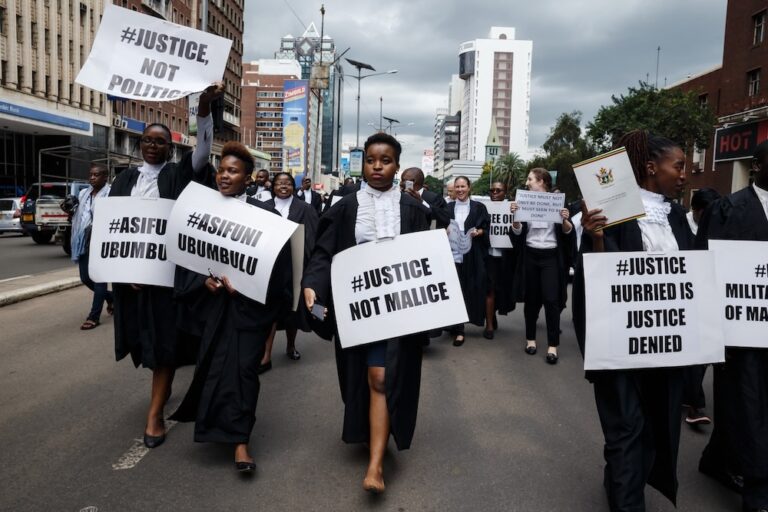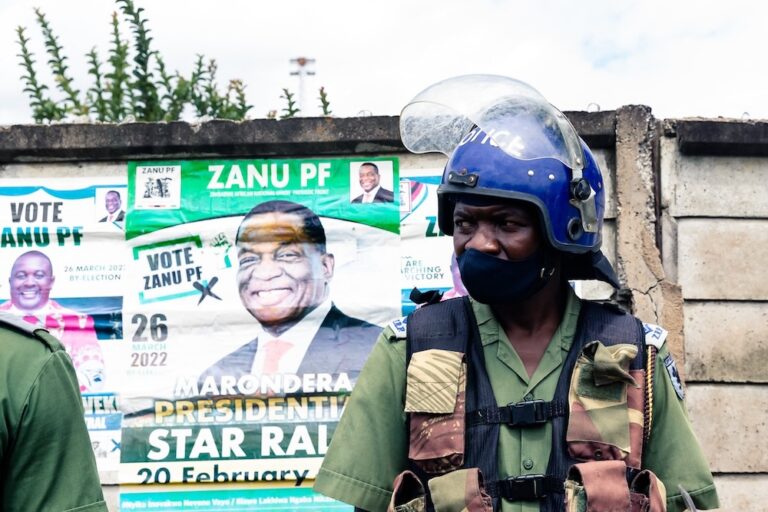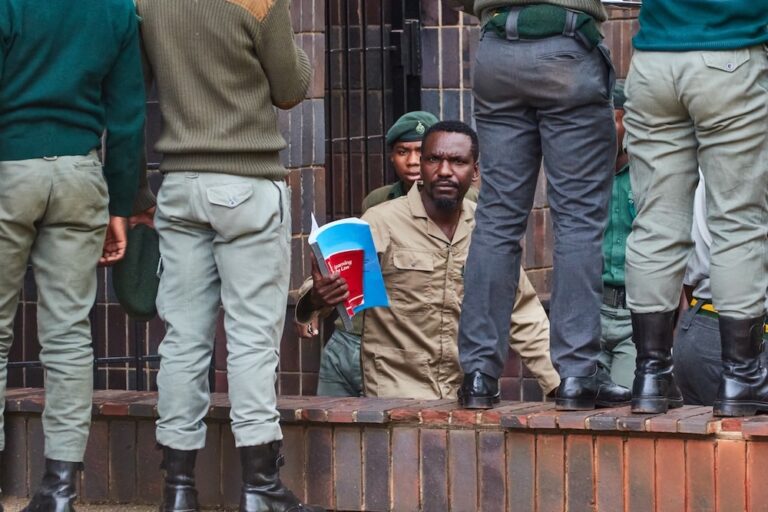The Patriot Act as it more commonly referred to, severely limits Zimbabweans’ rights to freedom of expression, peaceful assembly and association.
This statement was originally published on rsf on 23 June 2023.
Two months before presidential and parliamentary elections on 23 August, Reporters Without Borders (RSF) urges Zimbabwe to abandon a proposed “sovereignty and national interest” law that poses a major threat to journalism. Freedom of expression must be safeguarded, RSF says.
Zanu PF, the party that has ruled Zimbabwe since independence, used its parliamentary majority to get the draconian new bill – called the Criminal Law (Codification and Reform) Amendment Bill, or Patriot Bill for short – passed on the night of 31 May.
Clause 2 of this loosely worded bill provides for a death sentence or life imprisonment for anyone “wilfully injuring the sovereignty and national interest of Zimbabwe” by attending a meeting when they have “reason to believe” that its aim is “to consider or plan armed intervention.”
If the meeting’s aim is “to subvert or overthrow the government,” participants will face up to 20 years in prison. If sanctions or a commercial boycott of Zimbabwe are discussed, they could get a ten-year sentence.
Now that it has been approved by the senate, the Patriot Bill – which could clearly be used to imprison journalists covering meetings – will take effect as soon as it receives approval from the president, who has three weeks to sign it into law from the moment he receives it.
Journalists are exposed to the heavy penalties envisaged in this law, which violates the constitution and international standards on freedom of expression. This law is a formidable tool that will completely muzzle the press. Two months before the presidential and parliamentary elections, we urge the authorities to respect basic human rights, which include the right of assembly, the right to express oneself, and the right to inform. Journalists must be able to carry out their work without fear.
Sadibou Marong, director of RSF’s sub-Saharan Africa desk
Zimbabwe Lawyers for Human Rights executive director Roselyn Hanzi said the law “will set a bad and dangerous precedent on the continent” and could lead to more self-censorship in Zimbabwe.
“If a journalist is invited to attend a meeting by a foreign government, they may be forced to reject the invite as they will not know if these topics will not be discussed,” she said. “Any other participant at the meeting can raise that subject, and mere attendance may even lead to arrest.”
As the bill’s provisions are loosely worded, they are liable to be misinterpreted and are therefore all the more likely “to stifle freedom of expression,” Hanzi warned. Some of the provisions violate Zimbabwe’s constitution, article 48 of which limits the death penalty to persons convicted of aggravated murder.
Hopewell Chin’ono, a journalist who has often been arrested and threatened for criticising the government, condemned the bill when it was passed on 31 May. “A very sad day for Zimbabwe today,” he tweeted. “Free speech is now dead.”
Ruling party legislator Joseph Chinotimba insisted that the bill was “honourable and nourished by good intentions.” He said: “This bill does not aim to reduce the existence of political parties, but to encourage Zimbabweans to love their country and stop denouncing it.”
Zimbabwe’s legislation continues to impose heavy restrictions on its media. Some draconian laws were repealed but were replaced by others that are just as harsh and still limit journalistic freedom. To avoid reprisals, journalists routinely censor themselves.



